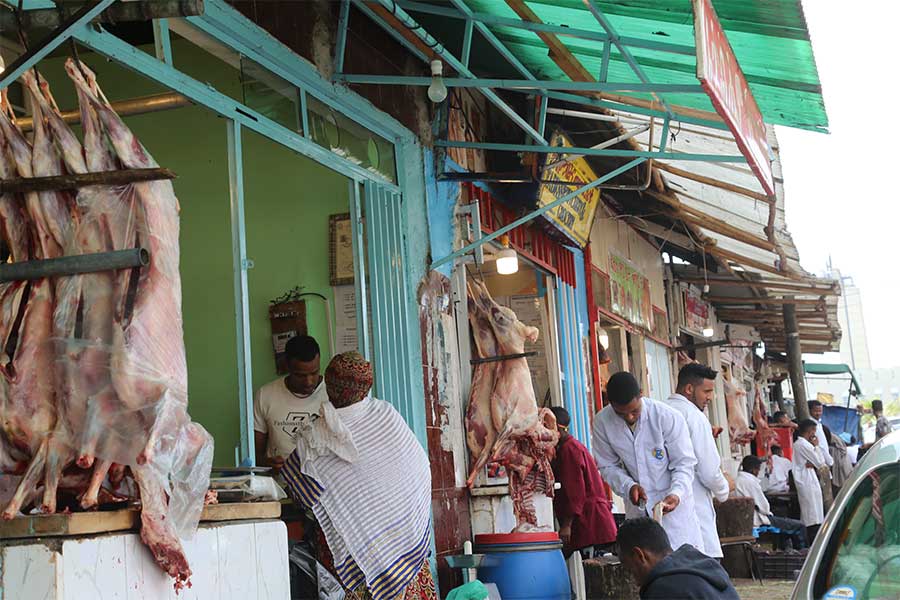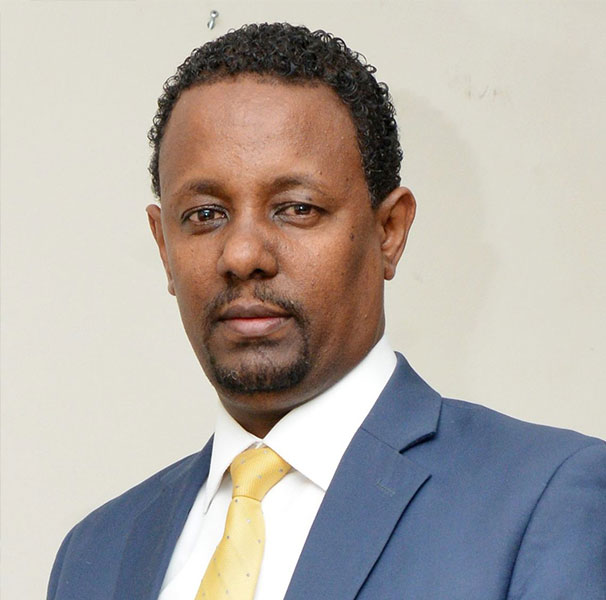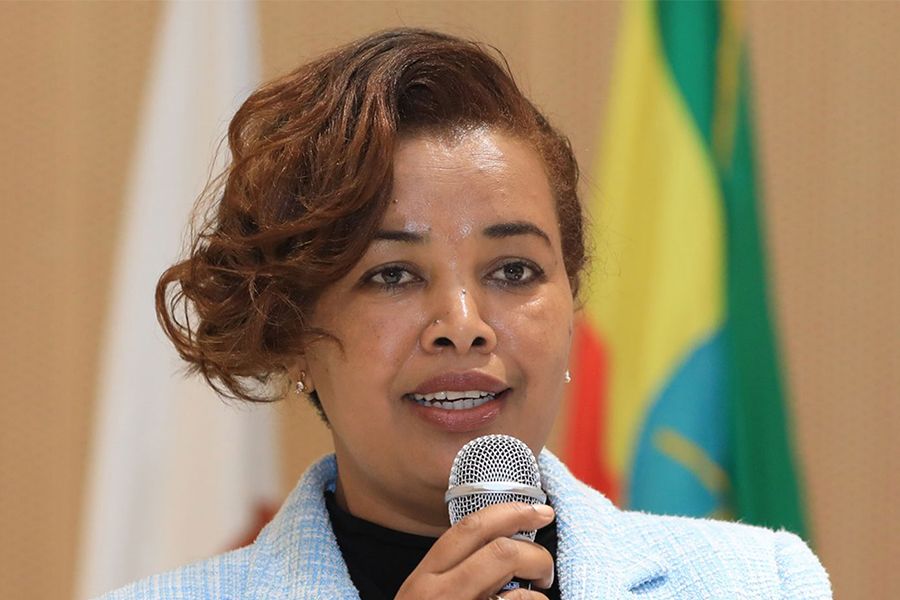
Sep 23 , 2023
By Richard Haass
There is an old Soviet joke in which a journalist asks the General Secretary of the Communist Party to assess the country's economy. "Good" is the short answer. The journalist implores the leader to elaborate so he can complete his story. "In that case," the General Secretary responds, 'not good.' "
Much the same could be said of the state of the world today. As many global leaders gather in New York for the 78th annual session of the United Nations General Assembly, with the notable exception of Chinese President Xi Jinping, Russian President Vladimir Putin, UK Prime Minister Rishi Sunak, Indian Prime Minister Narendra Modi, and French President Emmanuel Macron, there are reasons to be concerned.
The US-China relationship, arguably the most important of this era, is in poor shape despite a recent increase in the pace of diplomatic exchanges. The US goal is for the two major powers to establish a floor for bilateral ties. At best, however, the two governments will be able to avoid a crisis. But that is made more difficult by China's refusal to resume military-to-military communications and establish a crisis communication channel.
Even optimists do not foresee a path for the two to cooperate meaningfully on pressing regional or global challenges in the near future.
China faces significant economic challenges, mainly due to its policy shortcomings. But even if the problems are homegrown, it does not mean the consequences will remain confined to China. At a minimum, what happens there will impede global economic growth. At worst, there is the possibility that China's leadership will be tempted to act more aggressively abroad to distract from its domestic economic woes.
Elsewhere in the Indo-Pacific, North Korea continues to expand its nuclear arsenal's size and quality. The Pyongyang regime continues to test increasingly advanced ballistic missiles and has unveiled a nuclear-armed submarine, which would increase the survivability of its nuclear capabilities. There are no indications that North Korea is prepared to discuss, much less compromise on, its nuclear or missile programs.
Another concern is that Ukraine's counteroffensive, launched roughly three and a half months ago, has made limited progress. Well-fortified Russian forces still control large swaths of Ukraine's east and south. This reality, along with Russia's ability to boost its wartime weapons production – despite the US-led sanctions – and import arms from Iran and North Korea, suggests that the war, now well into its second year, will continue for some time.
Ukraine is understandably disinclined to compromise on its goal of reclaiming its territory. It continues to believe that the military tide will turn in its favour as more advanced arms arrive from the West. For his part, Putin thinks he will be able to ride out the costs of the war and that waning American and European support for Ukraine is a matter of "when," not "if." None of this gives would-be peacemakers much to work with.
In Afghanistan, it is increasingly clear that the new Taliban resembles nothing so much as the old Taliban. The real question is to what degree they will again allow their country to become a launchpad for terrorism. Then there is the question of how much the Taliban will contribute to the instability that has exacerbated Pakistan's vulnerabilities.
Speaking of weak states suffering from poor governance, weak institutions, and limited capacity, their number is growing in Africa and Latin America.
From a global perspective, the world is not doing much better. Following a worldwide pandemic that claimed roughly 15 million lives, the past summer was the hottest on record. With just over two months remaining until officials from across the world convene for the UN Climate Change Conference (COP28) in the United Arab Emirates (UAE), there is little reason to believe that governments are prepared to prioritise climate concerns over near-term economic priorities.
Finally, as artificial- and augmented-intelligence technologies rapidly evolve, there are no signs of an emerging international consensus on how to take advantage of their constructive dimensions and rein in their potentially destructive applications.
There is some good news. The strong Western response to Russian aggression and, more broadly, the renewed vitality of American-led partnerships and alliances in the Indo-Pacific aimed at deterring Chinese adventurism are prime examples. In the Middle East, Iran recently released five American prisoners in exchange for Washington giving Tehran access to six billion dollars in frozen assets, on the condition that the funds be used only for food and medicine. The two countries also appear to be working on an arrangement - albeit not a formal pact - whereby Iran would accept some limits on its nuclear activities in return for sanctions relief.
Similarly, negotiations appear to be making some headway on a US-brokered deal that would normalise relations between Israel and Saudi Arabia. If signed, this agreement can potentially strengthen Saudi Arabia's defences against Iranian aggression and provide Israeli-Palestinian diplomacy with much-needed momentum.
There is no getting around the reality that the bad news outweighs the good. International development goals are not being met. The recent G20 summit in India accomplished little, and the UN General Assembly meeting appears to follow in its footsteps. The UN's most important component, the Security Council, is sidelined and will remain so, given that one of its veto-holding members is waging a war that violets the UN Charter's most fundamental principle.
At a time when the demand is high for effective international cooperation, it seems to be in woefully short supply.
This article is provided by Project Syndicate (PS).
PUBLISHED ON
Sep 23,2023 [ VOL
24 , NO
1221]


Agenda | Dec 21,2019

Fortune News | Jan 02,2021

Fortune News | Sep 24,2018

Commentaries | Sep 16,2023

Radar | Oct 06,2024

Radar | Jul 02,2022

Commentaries | Jun 14,2025

Fortune News | May 07,2025

Radar | Oct 31,2020

Radar | Sep 28,2019

My Opinion | 132151 Views | Aug 14,2021

My Opinion | 128561 Views | Aug 21,2021

My Opinion | 126482 Views | Sep 10,2021

My Opinion | 124091 Views | Aug 07,2021





Dec 22 , 2024 . By TIZITA SHEWAFERAW
Charged with transforming colossal state-owned enterprises into modern and competitiv...

Aug 18 , 2024 . By AKSAH ITALO
Although predictable Yonas Zerihun's job in the ride-hailing service is not immune to...

Jul 28 , 2024 . By TIZITA SHEWAFERAW
Unhabitual, perhaps too many, Samuel Gebreyohannes, 38, used to occasionally enjoy a couple of beers at breakfast. However, he recently swit...

Jul 13 , 2024 . By AKSAH ITALO
Investors who rely on tractors, trucks, and field vehicles for commuting, transporting commodities, and f...

Jul 12 , 2025
Political leaders and their policy advisors often promise great leaps forward, yet th...

Jul 5 , 2025
Six years ago, Ethiopia was the darling of international liberal commentators. A year...

Jun 28 , 2025
Meseret Damtie, the assertive auditor general, has never been shy about naming names...

Jun 21 , 2025
A well-worn adage says, “Budget is not destiny, but it is direction.” Examining t...

Jul 13 , 2025 . By YITBAREK GETACHEW
The Addis Abeba City Revenue Bureau has introduced a new directive set to reshape how...

Jul 13 , 2025 . By BEZAWIT HULUAGER
Addis Abeba has approved a record 350 billion Br budget for the 2025/26 fiscal year,...

Jul 13 , 2025 . By RUTH BERHANU
The Addis Abeba Revenue Bureau has scrapped a value-added tax (VAT) on unprocessed ve...

Jul 13 , 2025 . By NAHOM AYELE
Federal lawmakers have finally brought closure to a protracted and contentious tax de...